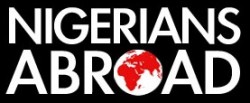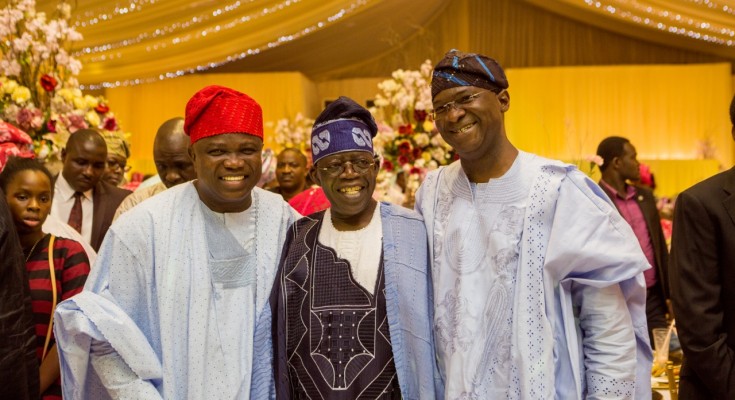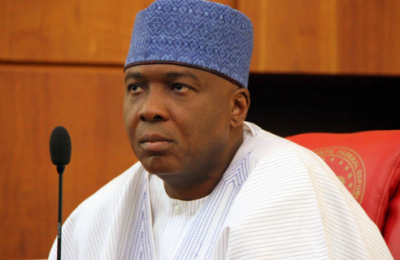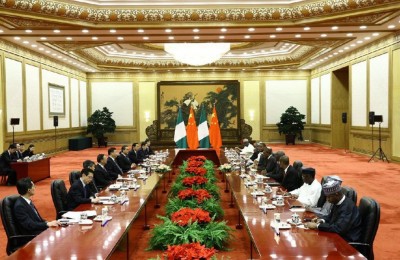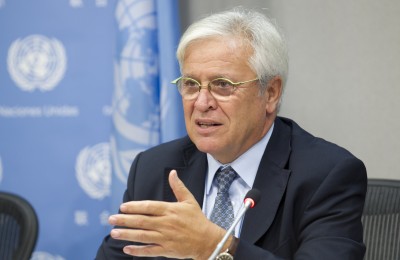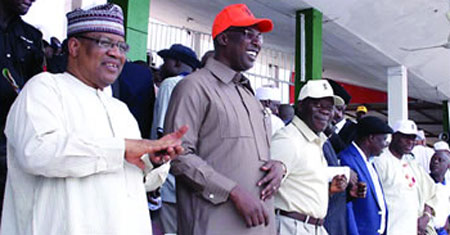By Kingsley Ighobor
An oft-told tale of Lagos’s once-notorious traffic jams is that of a taxi passenger stuck in a snarl-up who left the vehicle, wandered into a roadside restaurant to eat, drank a beer, took a nap and returned to the vehicle that had not moved an inch. He reached his destination several hours later.
First-time visitors to Lagos about 10 years ago were warned, “This is Lagos.” That meant that you should not expect help from anyone — but brace up for hard times ahead.
Fast-forward to 2016 and the traffic congestion, high crime rate, clogged gutters and roads filled with garbage could soon become just a bad dream. These days Lagosians still regale each other with anecdotes of the dystopian city even as positive changes can be seen in Africa’s most populous city, with 21 million people. These days the greeting “Welcome to Lagos” portends better news.
Transformation foundation
The transformation of Lagos started during the tenure of Bola Tinubu, Lagos State governor from 1999 to 2007. Mr. Tinubu set forth a rescue operation that his successor, Babatunde Fashola, later continued.
There were political and economic benefits for such efforts. “Lagos is Nigeria’s richest state, producing about $90 billion a year in goods and services, making its economy bigger than that of most African countries, including Ghana and Kenya,” notes the Economist.
A fast-growing population (600,000 people added annually), without commensurate improvements in social services such as housing, water and transportation, had pushed Lagos to the cliff’s edge.
“Manhattan” rises offshore
There have been impressive infrastructural developments, but the plan to create a “new city” at the edge of Lagos is probably the most audacious. Dubbed the “Manhattan of Africa,” Eko Atlantic on Victoria Island consists of 10 million square meters of land reclaimed from the ocean and protected by an 8.5 km seawall. Construction began in 2008, and it consists of seven districts along the oceanfront, including a business district that is expected to host major banks and insurance and oil companies, as well as the Nigerian stock exchange, once construction is fully completed.
Lagos’s government reduced crime rates by providing logistical support to the police force run by the federal government. It installed closed-circuit television in most parts of the city and established skills acquisition programmes for the “area boys”—youths, mostly jobless, who extort money from drivers and passengers. It also set up mobile courts to summarily try cases.
Oshodi market, located about five miles from Murtala Mohammed International Airport, used to represent the good, the bad and the ugly of Lagos: thousands of people to-ing and fro-ing; a cacophony of voices at the highest decibels; rickety buses meandering through a sea of human beings; pickpockets on the prowl; people fighting at one end, others dancing to loud music at the other end. Currently, most of what used to be Oshodi market has been demolished, to make way for a “world-class bus terminus,” according to government officials.
“The place [Oshodi] was harbouring criminals and a number of untoward activities,” said Steve Ayorinde, the current Lagos state commissioner for information and strategy, according to the Nigerian newspaper Vanguard. Mr. Fashola himself regards Oshodi’s transformation as a watershed moment. During his tenure, he often reminded Lagosians that, having transformed Oshodi, there was nothing they couldn’t achieve.
Lagos is becoming a clean city. Thousands of workers can be seen late every night sweeping the roads and taking away the dirt. An efficient garbage collection service supports the cleaning efforts. More than one million tons of waste was deposited in public landfills in 2015, up from 71,000 tons in 2004. About 72% of Lagos residents currently use a government-regulated waste disposal service; in 2005 only 42% used such a service.
Nigerians are generally in disbelief regarding the new Lagos. “This is not the Lagos I used to know,” says Sanusi Turay, who manages a private security firm in the city. The new Lagos is a bit of an anomaly, Mr. Turay explains, with a tinge of sarcasm. “But, honestly, we are very happy things are changing for the better.”
Just before Mr. Tinubu took over as governor in 1999, the BBC reported that “the realities of Lagos may thwart Mr. Tinubu’s ambitious plans; the city is collapsing as fast as it grows, disappearing under a mountain of rubbish.” But after 15 years of painstaking efforts, that image of Lagos is slowly changing.
Fashola’s strategy
After Mr. Tinubu exited, Mr. Fashola’s strategy was focused on three fronts. First, he solicited citizens’ support for a new vision of Lagos. The slogan Eko o ni baje (Lagos must not spoil) rallied Lagosians against the status quo. Second, he reformed the tax system, which resulted in an increase in tax revenues to $115 million per month in 2015, up from $3.2 million in 1999. Tax compliance increased to 80%, up from about 30% in 2005. Third, Mr. Fashola used the tax revenues to undertake ambitious transportation and sanitation projects, including the creation of a rail network, bus lanes and a waste collection system, as well as massive road rehabilitation.
Under the Bus Rapid Transit (BRT) system, Lagos transportation “became faster, safer, predictable, relatively cheaper and more comfortable,” reported Vanguard. The BRT itself created jobs for 2,500 people. Most of Lagos’ notoriously old and dangerous commercial buses, called Molues, were replaced by swanky new ones that use designated bus lanes. With support of private operators, the government procured about 1,300 taxicabs to run in the city.
In addition, an ambitious multibillion-dollar light rail project that began in 2010 is set to be completed by December of this year. The project consists of seven lines, which, on completion, will further ease Lagos city traffic.
The journey is not finished
Nowadays Mr. Fashola’s efforts have won bipartisan praise, a phenomenon rarely seen in Nigeria. Nobel laureate and social critic Wole Soyinka says, “Fashola diagnoses the problems and goes at it like a skilled mechanic.”
“There is no finish line in this journey,” says Mr. Fashola, whose term expired in 2015 and who now oversees Nigeria’s federal ministries of energy, works and housing. Both he and his predecessor Mr. Tinubu set a high bar. The jury is still out on the current governor Akinwunmi Ambode, who took the reins in May 2015. But for Lagos, the city of the late Afrobeat icon Fela Kuti and the city from which Africa’s richest person, Aliko Dangote, manages his business empire, the mantra continues to be Eko o ni baje indeed.
